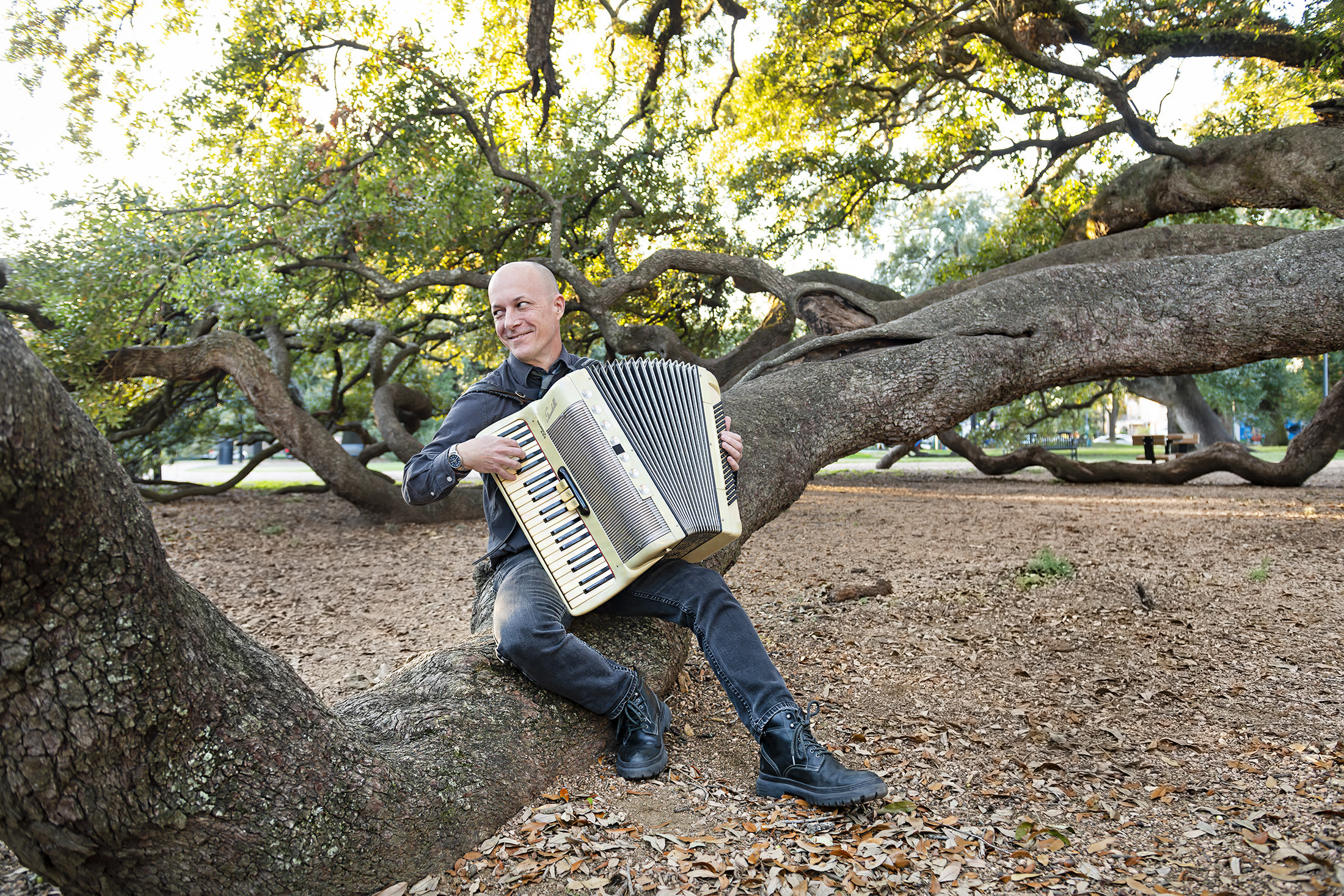Texas Medical Center Orchestra Prescribes Music for the Heart and Mind

Image: Anthony Rathbun
The Texas Medical Center Orchestra was heating up at its usual Wednesday rehearsal. Literally. On a surprisingly muggy January day, despite the previous week’s rehearsal getting canceled by Winter Storm Enzo, many of the players broke a sweat in their white lab coats. Every door at the Merfish Teen Center was open to try and capture an elusive Houston breeze, spilling music out into the Meyerland night.
Don Juan, specifically. A tone poem by modernist master Richard Strauss, a famously difficult and, uh, virile piece composed when he was only 24. The song is a sonic emotional dual between the conquests of the legendary Lothario and his profound melancholy at never finding true love.
TMCO founder and conductor Libi Lebel is determined to get the right emotional tone from her orchestra. Diminutive and dressed in typical conductor black, her enthusiasm shines through in her face and instructions, delivered in a broad New York accent. During the soaring romantic passages, she appears to swim through a sea of music, her eyes fixated on a scene no one else can see. When it comes time for the bass-driven triplets that signify Don Juan’s wild mood swings, she stabs her baton like a fencing foil, stomping her foot with the rhythm so hard it almost topples her music stand.
“These are tears,” she said to the cellists. “Da da DAH. Tears falling.”
The TMCO is entirely Lebel’s baby. A Juilliard graduate with a focus on conducting, she also studied at Westminster and Princeton—under the guidance of veteran conductor Michael Pratt at the latter, in fact; he himself has spent nearly half a century teaching white collar professionals how to play music. In 2000, Lebel was dating a medical resident from Houston who was preparing to return to the city to practice. This, plus Lebel learning about the Philadelphia Medical Orchestra, made her wonder if she could make her mark in H-town with a similar musical group.

Image: Anthony Rathbun
“I was young, inexperienced, and I didn’t know much about starting an orchestra,” she says. “I went up to UT Health, told them I need space and parking access. Also, I needed it for free and if I could get it yesterday, that would be good.”
Upon moving to Houston with her then-boyfriend later in 2000, Lebel built the orchestra, at the time called the Doctors Orchestra of Houston, almost out of sheer willpower. The name changed almost immediately after the Medical Center suggested that more than just doctors were involved. Money for sheet music was tight, so she went to the University of Houston’s library and asked for whatever they could offer for free. Churches like First Presbyterian provided performance venues and even threw in free cookies as reception vittles after shows. Bit by bit, it turned into a full orchestra.
Now, TMCO is considered one of the best community orchestras in the county. Since 2016, they have won major awards six times from American Prize, a leading national nonprofit performing arts competition. While not all the members are doctors, nurses, techs, and therapists, most are, and they often come to rehearsal straight from work.
According to Lebel, part of the reason for the high quality of the talent is that Houston (and Texas in general) has a robust history of high school musical programs, a pleasant side effect of marching bands being a core component of football culture. Many of the medical professionals in the city took music as electives in high school and college, and were keen to use keep using their skills. Lebel rarely has trouble filling open slots.
TMCO cellist Stephen Cook graduated with a degree in cello performance before moving to Germany to continue his music career. After returning to Houston in 2013, he went to work as a therapist for dyslexic children. When he learned about TMCO in 2022, he auditioned and immediately found a home.
“We do a lot of music outreach and teach a lot of students who couldn’t afford lessons on their own, which is important to me as a teacher,” he says. “We play these great venues like Miller Outdoor Theatre. It’s such an enrichment to our lives and the community.”
His colleague Dr. Grace Lee, a dermatologist and first violinist, also serves as the orchestra’s concert master. When she plays, her face morphs into an intense mask of concentration, though she’s quick with a laugh and a smile when talking about how much she enjoys working with the orchestra that has become central to her life. She even met her anesthesiologist husband, Charlie, a second violinist, there. He plays the harmonies that supplement the melodies handled by the first violinists. With some chagrin, Charlie admits to sighing loudly whenever Grace would take the lead as a principal soloist.
“They don’t realize I can actually hear them rolling their eyes back there,” Lee says, looking at Charlie with gentle affection. The two have been inseparable ever since they started dating in 2007.
A warm, respectful environment that encourages emotional connection between musicians and music is a major part of Lebel’s leadership. Anyone who has spent time in a band or orchestra will tell you that the competition can be fierce, sometimes even ruthless. Lebel prevents that with frequent breaks to applaud the different sections, celebrating everyone in the group equally.
That environment has benefits for the players in their professional lives. Lee credits Lebel’s conducting with teaching her how to care for patients better.
“I have to constantly remind myself to slow down and be a better listener and to pick up nonverbal cues of the patients and their parents,” Lee says, briefly looking down at her phone to answer a text from a resident. She is technically on call for the night. “I want to partner with them rather than simply giving them prescriptions. Libi is so on top of things. I look forward to being here. It’s invigorating.”

Image: Anthony Rathbun
Musical selections often include lesser-known modern pieces, bespoke commissions, or more traditional repertoire with a twist. In 2005, Lebel talked former First Lady Barbara Bush into narrating Camille Saint-Saëns’s Carnival of the Animals onstage with the group. Another recent concert from November centered around veteran homelessness, for which Lebel wrote a 30-minute piece for the narrator and vocalist about a soldier enlisting, developing post-traumatic stress disorder, becoming homeless, and then finding help. The orchestra also played a composition by Max Vinetz called “Lost Child” about the composer’s brother’s experiences in the military, as well as a rendition of Rodgers and Hammerstein’s “You’ll Never Walk Alone” with vocals by Rev. Michael Gott from Unity of Houston.
“I came out during the intermission, and a husband and wife came to me, shivering,” Lebel says. “He fell into massive tears, this six-foot bodybuilder. He told me his son died serving in Iraq. He was so moved.”
Even when the medical professionals play music, they continue healing Houstonians.




